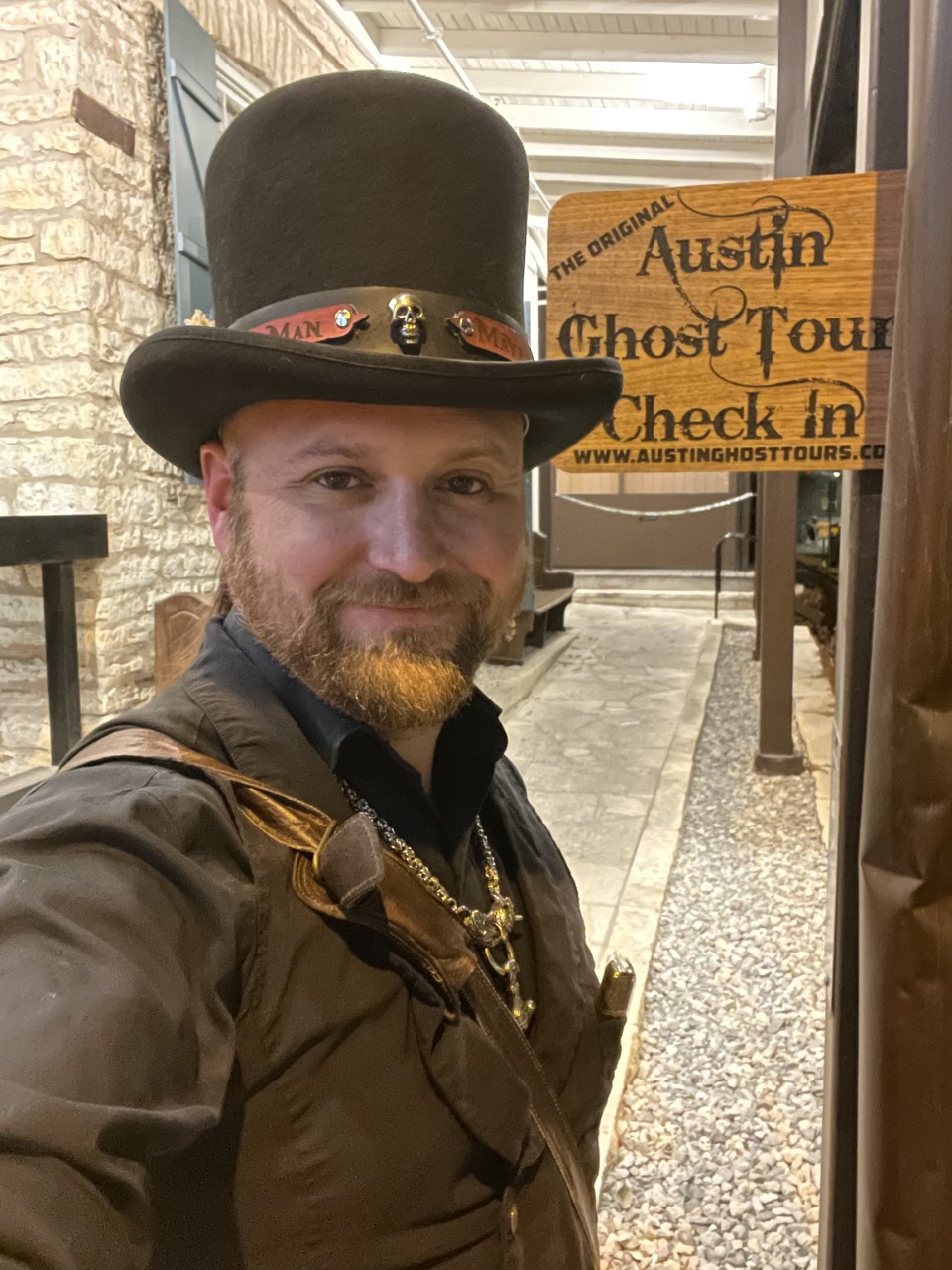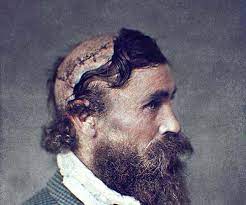Unaware, the group of men found a place to stop for lunch and dismounted beside a branch of Pecan Springs.
Seeing a real Comanche for the first time left the young men new to the country unsettled. Two of them kept their horses saddled and did not venture far from them which would prove to be a wise decision. Wilbarger and the other two unsaddled their mounts and hobbled them to graze while they lounged on the creek shores, a fatal mistake.
Suddenly there were war cries, gunfire, and arrows. Each of the men immediately tried to get behind a tree for cover. Back then a man was never separated from his gun, so the settlers quickly returned fire. One man next to Wilbarger fell immediately, mortally wounded. The other young man next to him never made it to cover and collapsed when a musket ball hit his thigh, shattering the bone. Without thought or hesitation, Wilbarger, an arrow through his calf and a flesh wound in his side, pulled him behind a tree, sustaining an arrow through his other leg in the process. Moments later, the man was dead slumped against the tree.
By this time the two other young men had jumped on their horses and were riding away. Wilbarger screamed desperately for them to stop and take him with them. He wanted them to slow down just enough to let him jump on the back of one of the horses. Dashing from his cover, he limped in their direction. Hearing Wilbarger scream their names, they turned their heads to see Wilbarger, arms outstretched, eyes wild with panic, pleading for them to wait and his voice broke as a rifle ball tore through the back of his neck, exiting on the left side of his chin. He fell and a wave of knife-wieldingnatives engulfed him just as they had the others. The surviving men rode at breakneck speed back to Hornsby’s Bend.
Eyes open, Wilbarger lay motionless
Appearing dead, unable to move or speak due to (what would later be discovered) a temporary paralysis. He watched the Comanche cut the throats of the two white men to ensure their death and take their scalps, shoes, clothing and guns. When it was Wilbarger’s turn apparently, the neck wound looked fatal enough to the tribesmen, so they did not slit his throat.
It was customary for many Native American tribes to take a part of the scalp of the conquered. Scalping is the act of cutting off a portion of hair. Wilbarger did not feel the blade encircling his skull, but would later say when the skin was ripped from his head, it sounded like distant thunder. The Indians gathered up their rewards, leaving Wilbarger with only a sock on his right foot.
Wilbarger drifted in and out of consciousness throughout the afternoon. When he awoke, he was feverish and aching with thirst. He felt as though his whole body was burning, but at least he could move. He crawled to the Creek and lay in the shallow water for a while. He inched his way back onto dry land and slept until the sun began to set. When he awoke again, he was consumed with thirst and hunger. Crawling along the shore, he devoured all the acorns and snails he could find. It was not until Wilbarger noticed the maggots growing in his wounds where the flys had landed, that he became alarmed and decided the only way to survive was to crawl the six miles back to the Hornsby Ranch. He made it about 600 yards. Exhausted, he leaned against an old post oak and gave up, accepting his fate.
As night fell
His spirit waned, he looked up and was startled to see his sister, Margaret Clifton, who lived at the time in St. Louis County, Missouri. She said to him, “Brother Josiah, you are too weak to go by yourself. Remain here and friends will come to take care of you.” Though Josiah begged her to stay, she drifted away and headed in the direction of the Hornsby ranch. Confused by her appearance, yet comforted by his sister’s words, Wilbarger felt a renewed strength. Help was on the way.
In the meantime, the 2 men who had escaped reached Hornsby’s Bend, and told the tale of what had happened. It was a solemn night at the Hornsby homestead.
That night Rueben Hornsby’s wife Sarah had a remarkable dream
She dreamed of a naked man, wounded, scalped and sitting by a large tree. She knew it was Wilbarger and woke her husband, exclaiming that Josiah was alive. Her husband chided her and insisted she was merely upset over news of the attack. She soon went back to sleep, and this time the dream came again, even more clearly than before. Her husband responded the same by going back to sleep. Mrs. Hornsby could not rest. Before sunrise she had the men’s coffee and breakfast ready and she hurried them out the door and back to the scene of the attack, making sure they had three sheets: one to wrap Josiah’s naked body and the other two to be buried with the dead. Also, provisions the injured man would need.
When the search party found Wilbarger he was not very far from the two slain men, but covered in blood as he was, one of the ranch hands nearly fired on him, mistaking him for a native. Wilbarger raised his arms, urging, “Don’t shoot! It’s me, Wilbarger!” Their first course of action was to bury their fallen comrades. Wilbarger was wrapped in the sheet and rode on horseback in front of Rueben. He stayed at the Hornsby homestead a few days before being taken to his home several miles down river.
In the weeks following the ambush, the Wilbargers intended to contact his family in St. Louis County to tell them what had happened, but before they had the chance, a letter arrived from Missouri informing them that Wilbarger’s sister Margaret had passed the day before the Indian attack. His sister’s first night in her grave was the same night he lay bleeding and hopeless under that old Oak Tree when his sister appeared with the message.
The story of the remarkable apparition of Wilbarger’s sister, and Mrs. Hornsby’s prophetic dream soon spread and is still told today, making it the oldest ghost story in Central Texas history.







